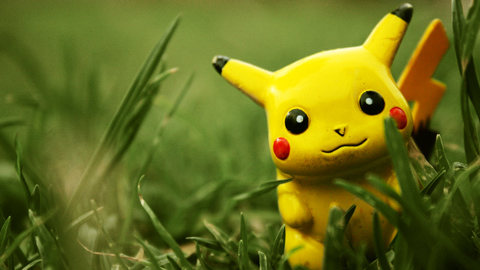Pokémon GO also introduced the beginning of a new technological era, Nintendo's stock renaissance, and new levels of poor social judgement. One thing is for sure: Pokémon GO is a big phenomenon.
If at the beginning of the summer anything was possible and Nintendo held the future in its hands, by the autumn the excitement had passed, and the new news angle to the story is that the popularity of Pokémon GO is fading and the fever is over.
A great hype is bound to decline at some point. Therefore, the news about the decrease of users is not surprising. More significant is what the abandonment of the Pikachus caught last summer will mean in a broader perspective.
Enduring Success of Pokémon
When talking about Pokémon GO and the reasons and consequences of its success, it is important to to understand that it is the latest turn of a long and carefully piloted media product and how it is linked with the previous production structure of the product family. In this context, speculations about the end of the hype can be seen in a totally new light.
The culmination of the original Pokémon phenomenon was around the turn of the millennium. Most of the memories Finnish people have originate from the animated Pokémon television series and the collectable cards that dominated children's school breaks.
Pokémon has by no means stopped being popular at any point. Even though it disappeared from the eyes of the wider public, the existing fan base was big enough to keep the product family profitable after its most successful years. The animated television series has been produced non-stop since 1998 with over 900 episodes, and different Pokémon video games have been launched almost yearly after the first games of the original series launched in 1996. Pokémon has quite successfully nurtured its own success and increased the affective capital of its audience over the years.
20-year-old Entertainment Supersystem
Media researcher Marsha Kinder popularised the term "entertainment supersystem" which means the networks that are created around products of commercial culture and its actors. In these networks, intertextual products and production methods cross the boundaries of media, social classes, age groups and methods of production.
Pokémon is exactly about this kind of intertextual and multimedia storyworld which is so large in size and fan base that a swing in the success of its individual products does not as such mean anything in the broader commercial or cultural context. When looking at individual products, Pokémon has been nothing but rising and declining booms, one after another, for 20 years.
Instead of individual products, Pokémon should be considered as a platform, the aim of which is to create gateways, such as Pokémon GO, to the supersystem. In fact, it is the wider world of Pokémon that is for sale, and individual products are only means to market and consume this abstract whole.
In this sense, Pokémon GO is a success and its (in the context of mobile games, fairly expected) decline is subsidiary, since Pokémon GO has already achieved its actual goal: the 20-year-old Pokémon product family entered its third decade of success in a big way. Old fans returned to the old familiar world in a new way, and new fans were introduced to the world of Pokémon where there is plenty to explore for years to come.
Although millions of people have already abandoned their Pikachus, the broader supersystem continues to exist and, most probably, to succeed in the future.
Text: Doctoral Candidate Johannes Koski
Translation: Saara Yli-Kauhaluoma
